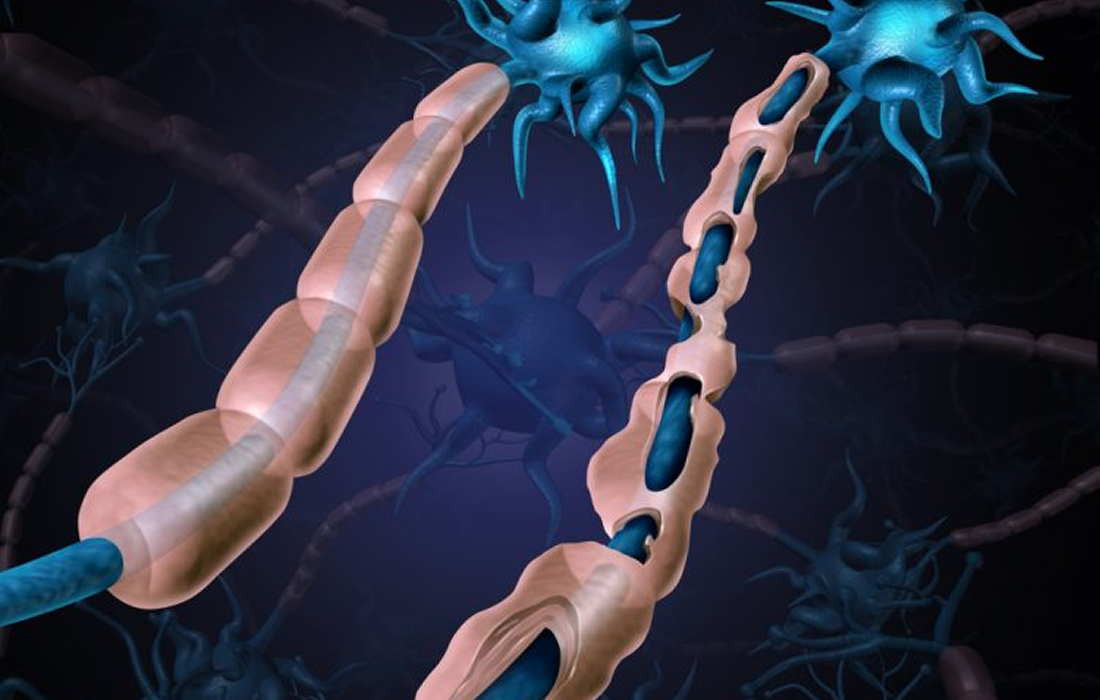Regenerative Medicine News and General Information
New Therapy for Multiple Sclerosis Can Reduce Brain Damage
Multiple sclerosis (MS) is an autoimmune disease that affects the central nervous system. In MS, the immune system does not recognize the protective sheath of myelin that surrounds the nerve cells and attacks it. This damages the nerve cells, causing symptoms such as muscle weakness, numbness, chronic pain, and coordination problems, among others.
Only in the United States, approximately 1 million people are living with MS, according to recent estimates and worldwide more than 2.3 million people have the condition.
Brain atrophy is one of the hallmarks of this disease and a good predictor of how the disease will progress. Higher rates of brain shrinkage have been shown to correlate with worsening symptoms in people with progressive MS.
New Clinical Trial
Even though more than a dozen therapies have been approved for the treatment of multiple sclerosis, only the monoclonal antibody ocrelizumab and the chemotherapy agent mitoxantrone are approved for progressive multiple sclerosis.
A study published in the New England Journal of Medicine evaluated the use of the medication Ibudilast.
Ibudilast is a small molecule available in Asia for the treatment of asthma and poststroke vertigo. This medication inhibits several cyclic nucleotide phosphodiesterases, macrophage migration inhibitory factor, and toll-like receptor 4, and can cross the blood-brain barrier, potentially having effects in the central nervous system.
The study involved patients with primary or secondary progressive multiple sclerosis, using the medication ibudilast compared with placebo for 96 weeks. They evaluated the primary efficacy endpoint with the rate of brain atrophy and secondary endpoints included the change in the pyramidal tracts on diffusion tensor imaging.
Of the 255 patients included in the trial, 129 were assigned to ibudilast and 126 to placebo. They found that after 96 weeks of treatment the rate of change in the brain parenchymal fraction was −0.0010 per year with ibudilast, which represents 2.5 ml of approximately less brain-tissue loss. The average volume of the adult human brain is 1.300-1.500 ml.
Dr. Robert J. Fox, a neurologist at the Cleveland Clinic in Ohio, led the randomized trial. He said: “The trial’s results are very encouraging and point toward a potential new therapy to help people with progressive MS. The trial also increased our understanding of advanced imaging techniques, so that future studies may require a smaller number of patients followed over a shorter period of time.”
Source:
Nutrition Review (2018, Sep 9). New Treatment for Multiple Sclerosis Reduces Brain Shrinkage by 50 Percent. Nutrition Review. Retrieved from:
https://nutritionreview.org/2018/09/new-treatment-for-multiple-sclerosis-reduces-brain-shrinkage-by-50-percent/
Robert J. Fox, MD., et al. Phase 2 Trial of Ibudilast in Progressive Multiple Sclerosis. N Engl J Med. 2018; 379:846-855. DOI: 10.1056/NEJMoa1803583.
Image from:

